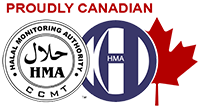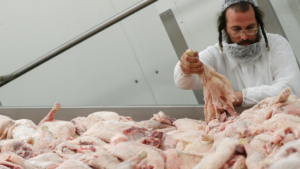Religion is one of the most powerful influencers affecting people and cultures’ decisions. Market behaviour studies have shown that consumer tastes shift in line with their moral sensibilities. Muslim people want halal, high-quality, and nutritious goods that adhere to Islamic guidelines. In recent years, halal foods have established a stronger foothold in big Western European fast-food chains, and supermarkets and food producers are getting on board to achieve a strategic edge. Because of technical advances, many consumers demand more accountability in the food processing process. They want assurances on humane practices, and several customers are now tracking their food “from farm to fork.” Since Halal foods necessitate stringent quality standards, customers increasingly see Halal food items as safe, sustainable, humane, and “animal-friendly.” Muslim customers, for their part, choose to live a Halal lifestyle and are continuously educated about food companies that adhere to Halal standards; the seal of approval from a certifying body is vital.
Halal certification is a process in which a legitimate, qualified, and neutral entity inspects the substance in question, verifies that it was manufactured in compliance with halal requirements, and issues an official document as a result. Halal certification requires producing a suitable, reliable, and consumable product for religiously responsive customers. In the food industry, Halal certification is becoming more popular. As the global Muslim population has surpassed 1.6 billion, there is an increasing market for the production and packaging of foods prepared by Islamic dietary laws using Halal chicken, mutton, beef, and other ingredients.
Companies must complete a three-step process with an advisory board to complete the Halal Certification process. There are many recognized certification companies all around the world, like HALAL MONITORING AUTHORITY, that work in Canada. Halal food certification doesn’t only certify the products. We are with them every step of the way. The HMA means we have monitored products from the start. Whether it is fresh chicken, meat or something, you find it in the grocery stores. It is the only way to be sure that the food you are eating is 100% halal. The Halal Monitoring Authority (HMA) recognizes the complexities of the food industry.
Halal Monitoring Authority Canada has developed a three-part inspection strategy that covers the entire road, from the source (abattoirs, slaughterhouses, manufacturers), to the middlemen (processors and distribution companies), to the retailers (butchers and food outlets). HMA’s practice entails inspecting food, beef, and other items from the point of origin to slaughter and its packaging and distribution. HMA labelling and registration are available to support you in making the Halal choice.
This halal certification procedure involves three steps :
- Evaluation, which includes an overview of the organization and the requirement for Halal certification.
- Inspection entails inspecting the factory and the operation on-site.
- Certification — Once the company passes the assessment and testing, it will be awarded certification.
Since there is no existing legal framework for the concept of “halal” or “haram,” the specification and compliance of those standards are inconsistent. Nonetheless, there are certain fundamental preconditions:
- The slaughter of the processed animal must be done by Quranic guidelines.
- There should be no pork meat in the drink (according to the dietary rules, the use of pork meat at any step of the preparation of halal food is forbidden)
- In most cases, using alcohol (even as a cleaning agent) is still troublesome.
Since there are no uniform guidelines for the manufacture and manufacturing of halal goods, there are many halal certifications and marks. The halal standards apply not only to the food industry but also to food ingredients, packaging products, and chemicals. It is an attainable and relevant certification standard for organizations that offer manufacturing and services in all fields that impact our lives, such as food, cosmetics, tourism, and influence our every day consuming or service routine. This is why the requirements rely on the manufacturing process and components used and the entire production plant, addressing computer cleaning procedures.
The halal food certification process is an application that offers many advantages to both manufacturers and customers. These benefits are:
- Consumers may make an informed decision based on their taste thanks to certification. At the same time, thanks to the halal food certificate’s continuous inspection process, customers can safely eat the food they purchase.
- “Halal cuisine,” which is in the food industry, has recently grown in popularity in the global economy. Companies who receive halal certification will supply their goods to the worldwide “halal food” industry, increasing their competitiveness. Suppose the producer has a halal certificate with HMA accreditation. In that case, it will be able to distribute and market its goods as “Halal” in all countries and demonstrate that it has the certification that it sells Halal products in other countries. This will enable the producer with an HMA approved halal certificate to stand out from both local and foreign rivals while also bringing prestige and confidence to the customer community concerned about eating halal food.
- The certificate certifies that not only the halal law standards of the “halal food” food product are met, but that food safety and sanitation procedures are strictly followed in the product/processing services as well.




